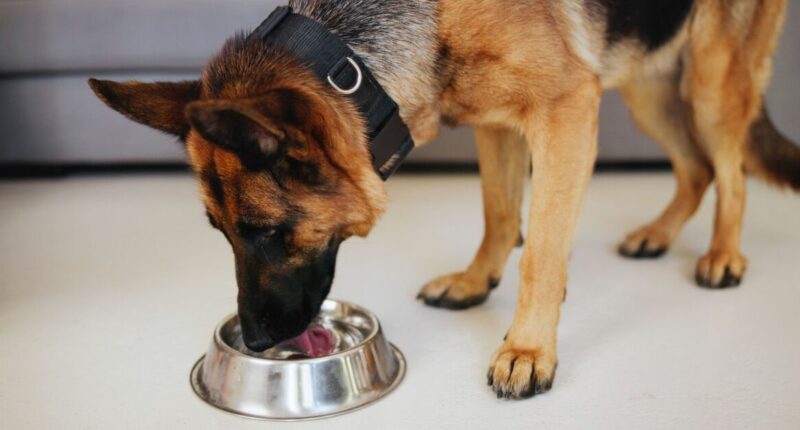Share this @internewscast.com
Every dog owner wants to do right by their beloved pet – and this includes ensuring their emotional and physical needs are properly met.
Dog owners are often embroiled in discussions about whether it’s best to feed their pets once, twice, or even three times daily. Such discussions are frequently shared across various social media platforms.
One person on Reddit mentioned, “I came across information suggesting that feeding dogs once a day is beneficial, but my dogs are accustomed to having two meals a day, even though they often skip breakfast.”
Another individual replied, “Feeding dogs just once per day can increase the risk of bloating. In my experience, my dogs may vomit if their stomachs are empty, so giving them two meals a day helps prevent that.”
Another user chimed in: “Twice a day for mine. Mine gets the hunger pukes if he doesn’t eat his breakfast, so one meal a day doesn’t work for him.”
A third participant commented, “I feed mine three times daily. I have older dogs, and many develop acid reflux or other issues as they age. A third meal helps prevent them from feeling nauseous overnight and from eating grass to induce vomiting in the morning.”
Experts from VAC Animal Hospitals provide clarity on this topic by advising that dogs should be fed at least twice a day, ideally at the same time each day, to maintain consistency.
An official statement clarifies: “Feeding your dog shouldn’t be complicated. By understanding some basic concepts and characteristics of dogs, we can devise a well-thought-out feeding schedule for them.”
“The most common recommendation is to feed your dog at least two meals per day and there are a few reasons for this.
“Dogs are creatures of habit. We can use this fact to our advantage by creating a regular feeding schedule and sticking to it.
“A regular feeding schedule helps with house training puppies, as well as adult rescue dogs who have not been taught household manners.”
By providing meals for your pet at consistent times each day, you’re establishing a “concrete event” and building routine into their daily life.
Moreover, you’ll be able to detect any problems they might be facing through their dietary behaviour.
The statement continues: “A disruption in eating patterns can serve as a warning sign of illness. When dogs consume food on a regular schedule, that habit becomes strong. It is easy to see if all the food from a meal is consumed.
“If food is left, whether all or part of a meal, that is an important signal that something is wrong, and it is time to schedule a veterinary appointment.”
Nevertheless, some dogs are less driven by food and would flourish equally well on a single meal per day – suggesting the guideline isn’t absolute.
“In an ideal world, at least two meals per day is best, based on the reasons described above,” the statement continues. “Some dogs are less food-motivated and do fine with one meal per day.
“Others may need more frequent meals, such as dogs that only eat small volumes of food at a time or dogs with medical conditions like gastroesophageal reflux disease (GERD), who are prone to reflux if their stomach is empty for too long.
“A third meal can be added as a ‘lunch’ or a bedtime snack, depending on the needs of the individual.”













